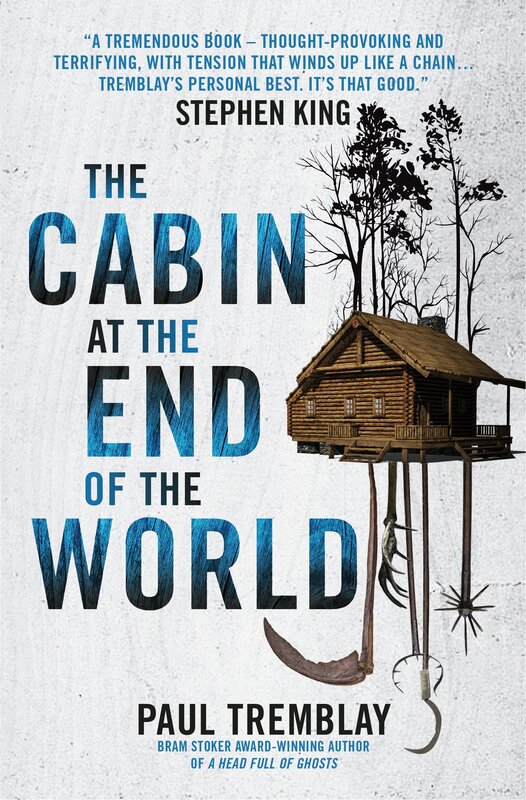I don’t want to go into too much detail about the plot, because part of the joy of this book is in the way it unfolds. Suffice to say that Tremblay holds nothing back, ratcheting up the tension to breaking point and beyond. His writing is more functional than stylish, but he can turn in a good phrase when he wants to. In any case, he knows how to do the most important thing, which is keep you turning those pages.
The characters are well-drawn, interesting, and compelling. Wen, Eric, and Andrew are likeable and believable enough to get you rooting for them, and the four invaders are never reduced to being simple boo-hiss bad guys. On a moment-to-moment basis, you’re never quite sure who’s right and who to believe, what’s real and what’s imaginary. The invaders are convinced that what they’re doing is right, and as the day progresses (the book takes place in only 24 hours), it seems increasingly plausible that they could be. The tension lies in this ambiguity, and the horror is not only from the threat of violence, but also something more existential.
Tremblay explores some weighty themes in his book: the slippery nature of truth, the pitfalls of blind faith, and the meaning of sacrifice. Ultimately, though, it’s about our determination to survive in the face of overwhelming threat. There’s some pretty clear parallels with the climate crisis, and a foreshadowing of COVID that’s chilling to read in 2022.
I read The Cabin at the End of the World in a day, also while I was on holiday (it made me wary of anyone coming near the house). It’s the definition of a book you can’t put down, surprising you at every turn, and making you question what came before. If you like your horror good and frightening, it’s a real treat.
Review by Charlie Alcock

 RSS Feed
RSS Feed
